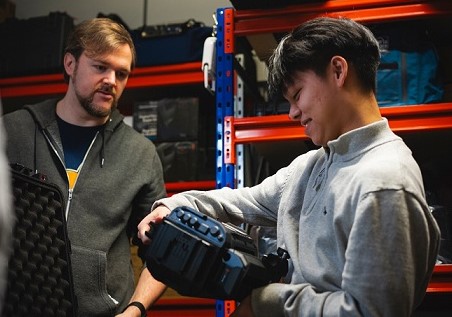As temperatures drop, vets are warning owners not to forget about small pets such as rabbits and guinea pigs that usually live outdoors yet are vulnerable to the cold and damp despite their furry coats. The British Veterinary Association (BVA) and British Veterinary Zoological Society (BVZS) are asking owners with outdoor hutches and runs to be vigilant during cold snaps and make sure that their pets’ living space is well-protected from snow, frost and winter rain.
BVA President Gudrun Ravetz said:
“Despite their warm furry coats, domestic rabbits and guinea pigs are vulnerable to extremes in weather. That’s why we’re asking owners to make sure that their pets do not suffer in the cold and that their home keeps them protected and comfortable. If owners have any concerns about their pet they should consult their local vet for advice.”
Owners should:
· Ensure pets’ homes are waterproof, draught-proof, dry and ventilated as well as escape-proof and predator-proof, checking regularly throughout the winter for water marks or other signs of damage.
· Keep the temperature of their rabbits' and guinea pigs' home between 0-20⁰C for rabbits (the lower temperature assumes rabbits are healthy and kept with other rabbits, with lots of bedding for warmth) and 5-20⁰C for guinea pigs, avoiding too many fluctuations in temperature change for both rabbits and guinea pigs.
· Check your pets’ water bottle or bowl regularly as they can freeze when the temperature drops.
· Place your pets’ home in a sheltered position, away from wind, rain and snow at least 10 cm off the ground.
· Make sure your rabbits and guinea pigs have extra bedding to keep warm during colder weather - line hutches with plenty of newspaper, provide lots of hay and cover with an old duvet/blanket/tarpaulin.
· If weather becomes very severe consider moving outdoor pets inside to a well-ventilated space with light and room to exercise - but never place them inside a garage you are using as vehicle exhaust fumes are harmful to rabbits and guinea pigs.
BVZS President Mark Stidworthy said:
“The small body size of these animals makes them very susceptible to hypothermia if they get cold or damp. They are powerless to alter the environment provided for them as conditions change, and so they rely on their human carers to make sure that their housing is safe and warm enough.”
















